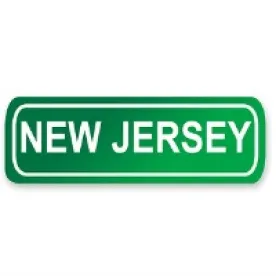On June 6, 2019, Governor Murphy announced a plan to revamp New Jersey’s economic development tax incentives programs, including proposed legislation to establish new incentive programs to incentivize certain redevelopment and other economic activities.
The proposed bill would establish five new incentive programs:
- The New Jersey Aspire Program, which would award tax credits to redevelopment projects in certain locations throughout the state;
- The New Jersey Forward Program, which would provide tax credits to encourage companies operating in New Jersey to stay and create more jobs in New Jersey;
- The New Jersey Innovation Evergreen Program, which would establish a program whereby the New Jersey Economic Development Authority (“EDA”) would auction tax credits to create a dedicated fund in order to invest in qualified venture firms;
- The Brownfields Redevelopment Incentive Program, which would provide tax credits to developers to compensate for the costs of remediation of brownfields; and
- The Historic Preservation Tax Credits Program, which would provide tax credits to reimburse developers for costs related to rehabilitation of historic buildings.
Brownfields Redevelopment Incentive Program
Under the proposed bill, EDA will coordinate with the New Jersey Department of Environmental Protection (“DEP”) to administer the Brownfields Redevelopment Incentive Program (the “Brownfields Program”). To be eligible for tax credits under the Brownfields Program, developers will need to demonstrate: (1) that no remedial work has begun at the subject site prior to applying for credit; (2) that the project is located on a brownfields site (as defined in the bill); (3) that the redevelopment is not economically feasible without the tax credits; (4) that a “project financing gap” exists, i.e., that the developer cannot secure sufficient financing for the remediation project; and (5) that the municipality in which the brownfields site is located supports the redevelopment.
“Brownfields site” is defined in the bill as a vacant or underutilized former commercial or industrial property that is, or is suspected of being, contaminated.
If EDA approves an application for tax credits under the Brownfields Program, the developer must enter into a redevelopment agreement with EDA, which specifies the amount of the credits and timeframes for the remediation. Once the redevelopment project is complete and the developer receives certification from DEP, the developer will receive the tax credit, which will be equal to 40 percent of actual remediation costs, 40 percent of the costs set forth in the redevelopment agreement, or $4 million, whichever is less. The amount of the credit can be increased if the developer enters into a project labor agreement. The bill also allows developers to transfer credits obtained through the Brownfields Program.
If the Governor’s plan goes into effect, the Brownfields Program could dovetail with the Brownfields Loan Program that EDA announced in April 2019. Under that program, up to $5 million in low-interest financing will be available to assist in completing remediation activities at brownfields sites. EDA has proposed rules to effectuate the program and it is anticipated that funding will be available in the near future. Together, the Brownfields Loan Program and the tax incentive Brownfields Program could bridge funding gaps for many brownfields projects and bolster redevelopment efforts throughout the state.
Co-Authored by Carmella M. Gubbiotti.









 />i
/>i
